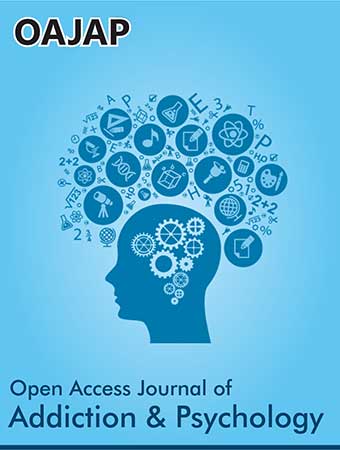 Research Article
Research Article
Polyamory: A Study of Love Multiplied
Kelsey Gruebnau1*, Stephen E Berger2, Bina Parekh3 and Gilly Koritzky4
1Argosy University, Orange, California, United States
2The Chicago School of Professional Psychology, Irvine, California United States
3The Chicago School of Professional Psychology, Irvine, California United States
4The Chicago School of Professional Psychology, Irvine, California United States
Kelsey Gruebnau, Argosy University, Orange, California, United States.
Received Date: August 24, 2020; Published Date: February 05, 2021
Abstract
This study was developed to gain a better understanding of the polyamorous population by sampling a group of self-identified polyamorous, or non-monogamous, adults. The dimensions investigated through this research included demographic data, polyamorous relationship type, perceived acceptance from others, relational and sexual satisfaction, and perceived access to quality mental healthcare services. The sample consisted of 1,005 polyamorous adults recruited through social media outlets and administered an online, self-report questionnaire. Information pertaining to demographics, polyamorous lifestyle, perceived discrimination, degree of disclosure, and attitudes toward mental healthcare services was gathered with the Polyamorous Lifestyle Scale, a measure developed by the principal researcher. Degrees of relational and sexual satisfaction were measured by the Global Measure of Relationship Satisfaction and the Global Measure of Sexual Satisfaction, with permission from the author(s). Findings illustrated significant differences between individuals with differing polyamorous relationship types on degree of disclosure to others, perceived discrimination, comfort with disclosure to mental health professionals, relationship satisfaction, and sexual satisfaction. Differences were also found between self-identified gender on degree of sexual and relationship satisfaction. In addition, Differences were found between individuals with differing sexual orientations on degree of sexual satisfaction. These findings demonstrate significant within-group differences among polyamorous individuals that appear to relate to relational and sexual satisfaction. Implications for clinicians working with this population, and how group membership, in addition to intersectionality, may impact the experiences of polyamorous individuals are provided. These findings are intended to inform future research and aid mental healthcare professionals in establishing evidenced-based practices and ethical guidelines for treatment and clinical training for working with polyamorous individuals. Overall, more in-depth research and training is needed on all aspects of polyamory, especially that which will promote the accessibility and development of quality mental healthcare services provided by clinicians attuned to the specific needs and experiences of this community
-
Kelsey Gruebnau, Stephen E Berger, Bina Parekh, Gilly Koritzky. Polyamory: A Study of Love Multiplied. Open Access J Addict & Psychol. 4(2): 2021. OAJAP.MS.ID.000585.





